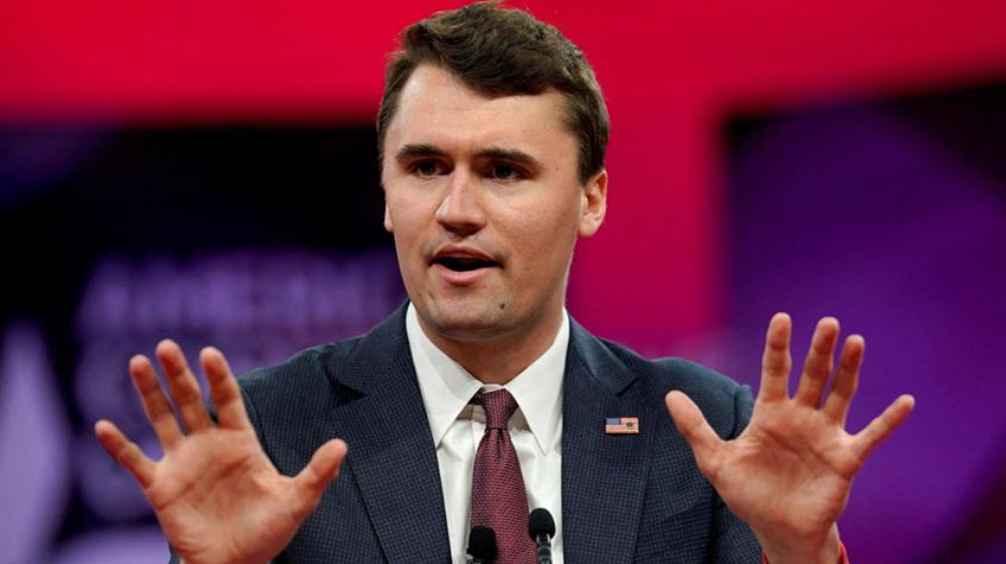Professor fighting dismissal for calling Charlie Kirk a Nazi became a flashpoint in the national debate over free speech after a federal court intervened to temporarily reinstate him. What began as a heated social media post now looms large as a test case for the limits of academic speech rights and institutional authority.
The Core Incident and Court Ruling
Days after conservative activist Charlie Kirk was fatally shot during a campus event on September 10, 2025, Phillip Michael Hook, a tenured art professor at the University of South Dakota, posted on his private Facebook account:
“Okay. I don’t give a flying f*** about this Kirk person. Apparently he was a hate spreading Nazi. … I’m sorry for his family that he was a hate spreading Nazi and got killed.”
Hook later removed the post and issued an apology, writing that his frustration led to an ill-considered remark.
Soon afterward, the university initiated proceedings to place him on administrative leave and eventually terminate his position, citing violation of internal speech policies. Public pressure mounted, including statements from state leaders demanding his firing.
On September 25, a U.S. District Court judge, Karen E. Schreier, granted Hook a temporary restraining order, effectively halting his dismissal. The court ordered that Hook be reinstated to his position until at least October 8, when a preliminary injunction hearing is scheduled.
In her ruling, Judge Schreier reasoned that:
- Hook spoke as a private citizen, not as part of his university duties.
- His comments concerned a matter of public concern (the high-profile killing).
- The university could not adequately show that his speech had a materially disruptive effect on campus operations.
- The university’s attempt to punish him appears to be retaliation for protected political speech.
Thus, the judge found that Hook had a plausible path to prevail under the First Amendment and ordered his reinstatement pending further hearings.
Other Educators Join the Legal Challenge
Hook’s case is not isolated. In Iowa, Matthew Kargol, a long-time high school art teacher, filed suit after being terminated for posting “1 Nazi down” in response to the same assassination. Kargol’s legal team argues that his post was rhetorical hyperbole referring to a major political event—not a threat or classroom misconduct—and that his termination was viewpoint discrimination.
Beyond South Dakota and Iowa, multiple educators and school staff across several states are bringing federal lawsuits, citing violations of their First Amendment rights. Some were dismissed or suspended after making social media comments regarding Kirk’s death, even on their private, off-duty accounts.
These cases collectively are beginning to define the legal boundaries of what educators in public institutions can say—or be punished for saying—when speaking as private citizens.
Legal Principles and Expert Perspectives
Speech by Public Employees vs. Private Speech
One foundational issue is when a public institution (e.g., a state university or public school) may discipline an employee for speech. The U.S. Supreme Court has long held that public employees do not surrender all free speech rights—especially when speaking outside the scope of their official duties on matters of public concern.
Legal voices such as Jessie Appleby, an attorney with the Foundation for Individual Rights and Expression (FIRE), emphasize that political speech is at the core of First Amendment protection. She notes that “rhetorical hyperbole” is often shielded, even when provocative or harsh.
However, other scholars caution that protections are not absolute. Brent Skorup, a legal fellow at the Cato Institute, stresses that if a university shows the speech significantly disrupts campus operations, it may have grounds to act.
Institution’s Code of Conduct, Disruption, and Standards
Universities often maintain policies requiring employees to show “respect for the opinions of others” or to avoid statements that impair institutional reputation or functioning. The key legal tension is whether those rules can override speech that courts find protected.
Courts often undertake fact-intensive scrutiny: Did the speech occur off-duty? Did it disrupt class or invite campus turmoil? Was the speech purely personal? Are there clearer limits (like direct threats or incitement) that justify institutional action?
Precedents & Comparisons
Previous cases reinforce the complexity. For instance, the 1987 Rankin v. McPherson decision protected a public employee who privately expressed a desire for violent harm to a public figure, because it was a matter of public concern and lacked proof of workplace disruption.
More recently, courts have reinstated educators after finding that social media posts—even harsh ones—are constitutionally protected when made outside work duties, particularly when they address political events.
Thus, Hook’s temporary reinstatement aligns with broader judicial willingness to side with academic speech rights—at least in preliminary stages—pending more extensive proceedings.
Reactions, Critiques, and Stakes
Political and Institutional Backlash
South Dakota’s political leadership reacted sharply to Hook’s post, with the governor and other state officials vocally demanding his removal. The case touches raw nerves about campuses, culture wars, and ideologically charged speech.
Some argue that allowing such speech in academia sends the message that hateful or inflammatory rhetoric is condoned—or that universities are abdicating responsibility for maintaining respectful public discourse. Others counter that censoring such speech risks chilling debate and undermining academic freedom.
Risks of Campus Disruption
Opponents of Hook’s reinstatement warn that vindicating extreme or incendiary speech may lead to campus unrest, harassment, or damage to institutional reputation. Universities argue they need authority to discipline when speech undercuts their climate of inclusivity or security.
What This Means For Academic Speech
If courts ultimately side with Hook (and others), it would reinforce stronger protections for professors’ off-duty political commentary—even harsh or provocative commentary. That could embolden faculty voices across the ideological spectrum.
Conversely, if institutions prevail, it could narrow the space for controversial speech in academia, especially where institutions claim reputational harm or disruption.
Media attention, legal filings, and public support (or backlash) will all play roles in shaping how these cases proceed—and in how the public sees academic freedom versus institutional accountability.
What Might Happen Next
- On October 8, the preliminary injunction hearing will test whether Hook’s reinstatement becomes more permanent while the case proceeds.
- If Hook prevails, his case could become a precedent referenced by similar lawsuits—not only in education but in other public sectors.
- Universities may revise or sharpen policies governing faculty speech, especially on social media, to reduce their exposure to legal challenges.
- Public universities might adopt clearer guidelines delineating when off-duty speech is protected versus when it can be disciplined.
- The broader swirl of lawsuits—especially from K–12 and adjunct faculty—may force courts to more clearly map the boundaries of free speech for educators in the digital age. The Washington Post
Why This Case Matters Far Beyond One Professor
This confrontation is more than an academic dispute. It’s a crucible for competing values:
- Free expression vs. institutional control
- Political speech vs. reputational risk
- Due process for public employees vs. accountability for harmful language
In an era where social media amplifies every post, the decision in Hook’s case could ripple across campuses and public workplaces across the U.S.—shaping what educators can say, how institutions respond, and how society balances free speech with communal standards.
Conclusion
Professor fighting dismissal for calling Charlie Kirk a Nazi now holds a powerful legal foothold: a federal judge’s order reinstates him—for now—while his First Amendment claim is adjudicated. The decision underscores how heated political speech by public educators intersects with institutional controls, legal doctrine, and cultural tensions over free expression.
As this case unfolds in court, it will likely become a landmark in defining how far educators may go in criticizing public figures without losing their positions. That makes it not just a local university controversy—but a test for free speech norms in the age of social media.
Stay tuned for updates—because your audience deserves analysis that’s deeper than headlines. Subscribe to trusted news sites like USnewsSphere.com for continuous updates.





